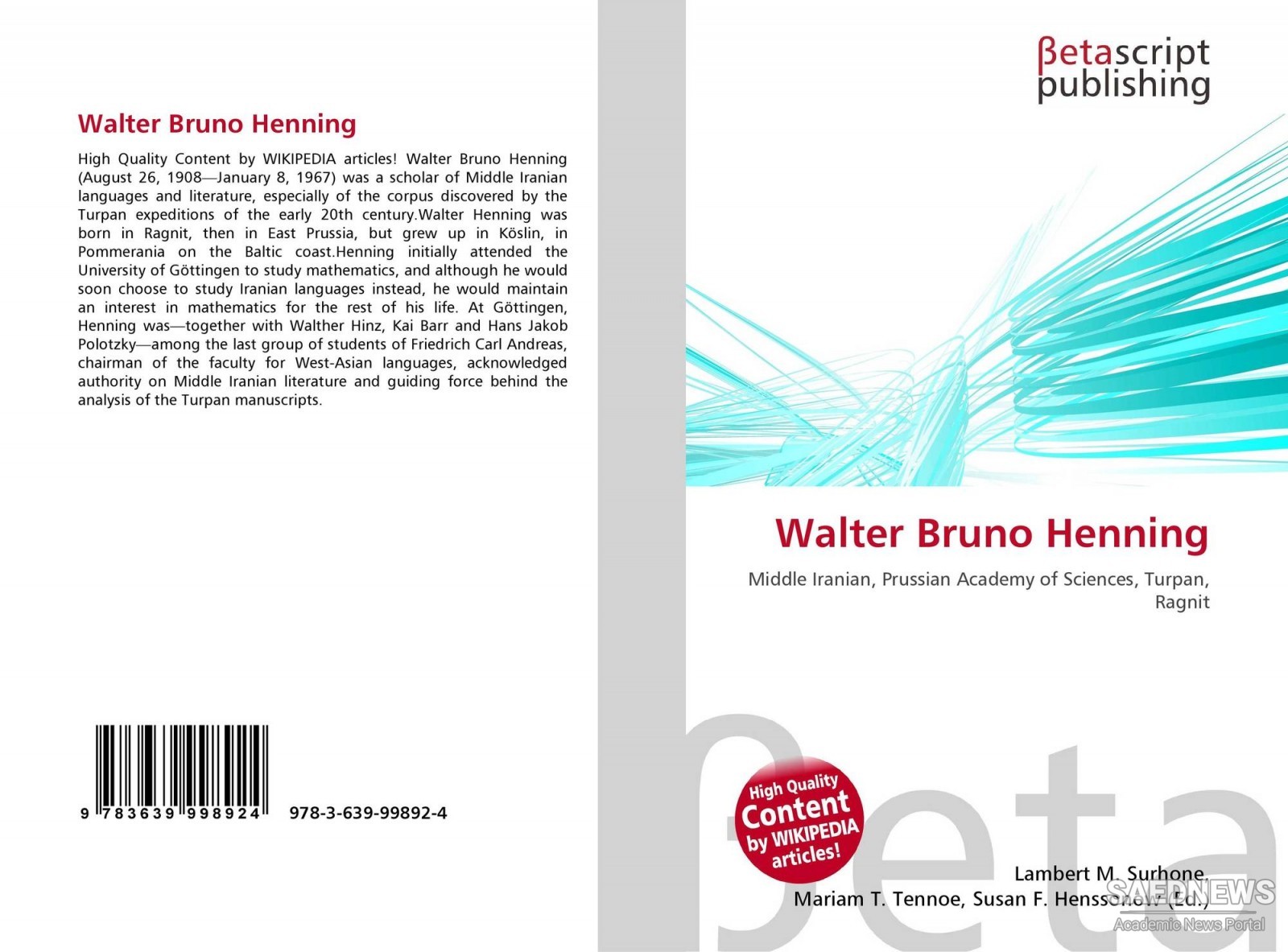An appreciation of the work of Walter Bruno Henning (in his earlier publications W[alter], from 1937 W[alter] B[runo] Henning), would almost amount to writing a history of the study of Middle Iranian languages and cultures in the 20th century. There exists hardly any discovery in this realm of knowledge to which Henning has not made major and fundamental contributions, and the fact that it is precisely this area of Iranian studies which went through an unprecedented evolution in the 20th century underlines the importance of this scholar, who can be without exaggeration considered as one of the leading philologists of the past century.
The emphasis on the philological character of Henning’s work is justified not only because all his discoveries were made through deductions from or new interpretations of original sources, but also because his working system kept astonishingly aloof from theorems regarding contemporary linguistics, the philosophy of history, ethnology, and comparative religion. His philological convictions were those of the young grammarians, and concepts such as “phoneme” or references to the laryngeal theory will hardly be found in his works.
When Henning dealt with questions concerning the history of religion, he made concrete references to facts regarding Zoroastrianism and Manicheism and extensively upheld and defended the tenets of Christian Bartholomae (q.v.), Hans Jacob Polotsky, and their period. His reticence with regard to the methods of scientific theories and models of his time was often well founded. It indeed protected Henning from the lures of fruitless fashionable theories and the temptations of politically motivated trends.
It did not damage the extent of his achievement, for the position of research on Iranistics was such, both in the ancient and in the classical realms, that there were (and are) mainly philological works confronting research as problems, and for these Henning was uniquely gifted and schooled. In most cases, his critical verdict about new theories and methods has proved to be right, and so has his conviction that “it is a fallacy to think that a novel opinion is necessarily right, or an old opinion necessarily wrong” (quoted in I. Gershevitch, “W. B. Henning, 1908-1967: In Memoriam,” in I. Gershevitch and Mary Boyce, eds., W. B. Henning Memorial Volume, London, 1970, p. xvii).


 Ernst Emil Herzfeld
Ernst Emil Herzfeld














































